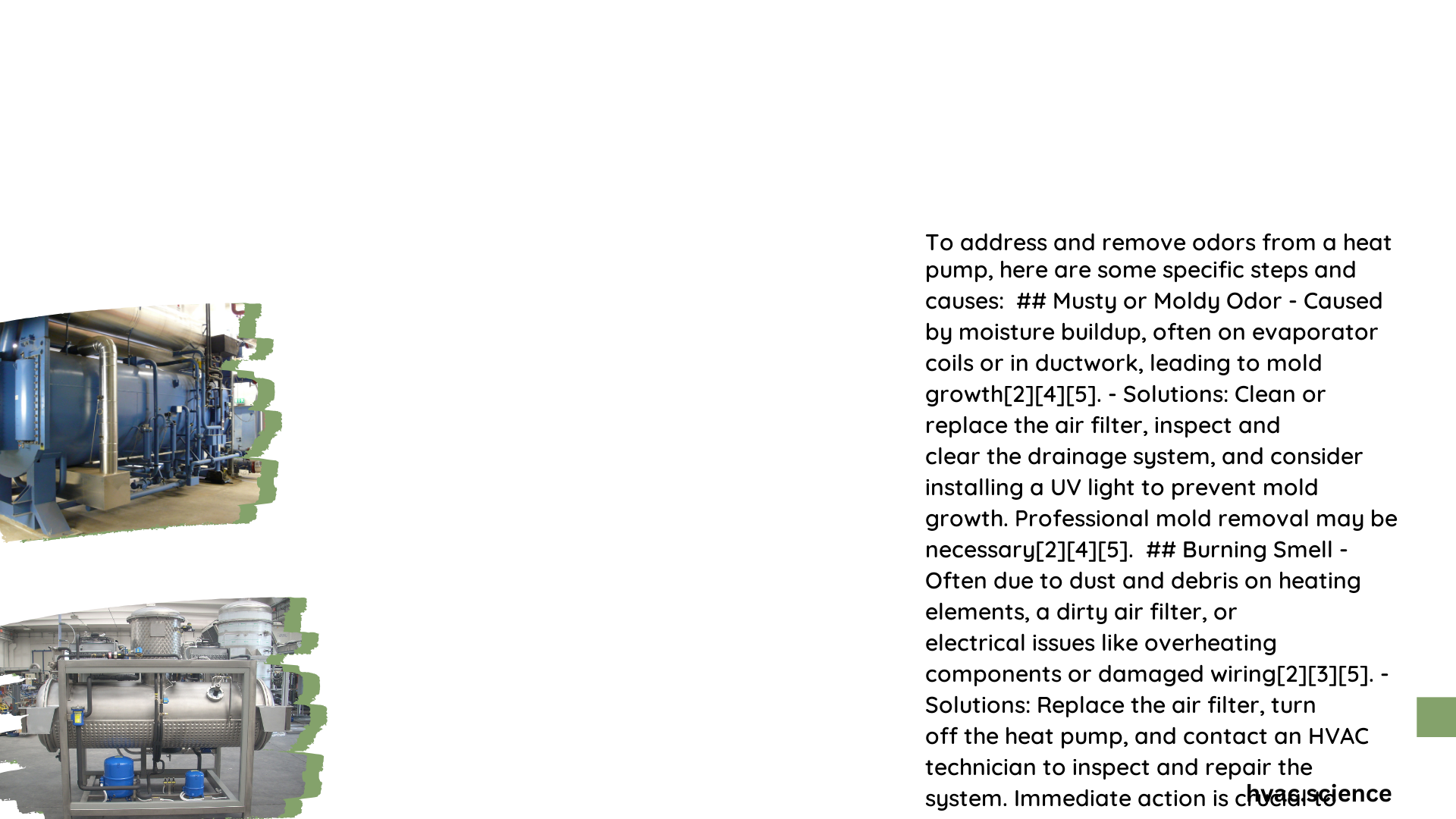Heat pump odor removal is a crucial aspect of maintaining a comfortable and healthy indoor environment. Unpleasant smells from heat pumps can stem from various sources, including dirty filters, mold growth, and mechanical issues. This comprehensive guide explores the causes of heat pump odors, provides step-by-step removal techniques, and offers preventive maintenance practices to ensure your heat pump operates efficiently and odor-free.
What Are the Common Causes of Heat Pump Odors?
Heat pump odors can originate from several sources:
- Dirty or clogged filters
- Mold and mildew growth
- Overheated components
- Refrigerant leaks
- Dirty coils
- Pest infestations
Each of these issues can produce distinct odors, ranging from musty smells to burning odors or chemical scents.
How Can You Identify the Source of Heat Pump Odors?

Identifying the source of heat pump odors is the first step in effective removal. Here’s a quick reference table to help you pinpoint the cause:
| Odor Type | Possible Cause |
|---|---|
| Musty or Moldy | Dirty filters, moisture buildup |
| Burning | Overheated motor, fan, or wiring |
| Chemical | Refrigerant leak |
| Rotten Eggs | Gas leak (for gas-powered systems) |
| Smoky | Dirty filters or coils |
What Are Effective Heat Pump Odor Removal Techniques?
1. How to Clean or Replace Filters?
Dirty filters are a common source of odors. Follow these steps to clean or replace your heat pump filters:
- Turn off the heat pump
- Locate and remove the filter
- Inspect for damage or excessive dirt
- Clean washable filters with mild detergent and water
- Replace disposable filters
- Allow filters to dry completely before reinstalling
Estimated time: 15-30 minutes
2. How to Clean Evaporator Coils?
Dirty evaporator coils can lead to mold growth and unpleasant odors. Here’s how to clean them:
- Turn off the heat pump
- Locate the evaporator coils
- Use a soft brush or vacuum to remove debris
- Apply a coil cleaner solution
- Rinse thoroughly with water
- Ensure proper drainage
Estimated time: 30-60 minutes
3. How to Address Refrigerant Leaks?
Refrigerant leaks require professional attention due to their potential health hazards:
- Turn off the heat pump immediately
- Contact a certified HVAC technician
- Have the technician locate and repair the leak
- Recharge the system with the correct amount of refrigerant
Note: Never attempt to handle refrigerant leaks on your own.
What Preventive Maintenance Practices Can Eliminate Heat Pump Odors?
Regular maintenance is key to preventing heat pump odors. Implement these practices:
- Replace filters every 2-3 months
- Schedule annual professional maintenance
- Keep the area around the outdoor unit clear of debris
- Clean the condensate drain line regularly
- Inspect and clean ductwork as needed
How Often Should You Clean Heat Pump Filters for Odor Prevention?
The frequency of filter cleaning depends on several factors:
- Standard filters: Clean or replace every 1-3 months
- HEPA filters: Replace every 6-12 months
- Homes with pets or high dust: Clean more frequently
Regular filter maintenance not only prevents odors but also improves energy efficiency and indoor air quality.
What Professional Services Are Available for Heat Pump Odor Removal?
For persistent odor issues or complex problems, consider professional services:
- Comprehensive system cleaning
- Duct cleaning and sanitization
- Coil deep cleaning
- Refrigerant leak detection and repair
- System component replacement
Professional services ensure thorough odor removal and can identify underlying issues that may be causing persistent smells.
By following these heat pump odor removal techniques and maintenance practices, you can ensure your heat pump operates efficiently and provides fresh, clean air for your home or office. Regular attention to your heat pump’s condition will not only eliminate odors but also extend the life of your system and improve overall indoor air quality.
